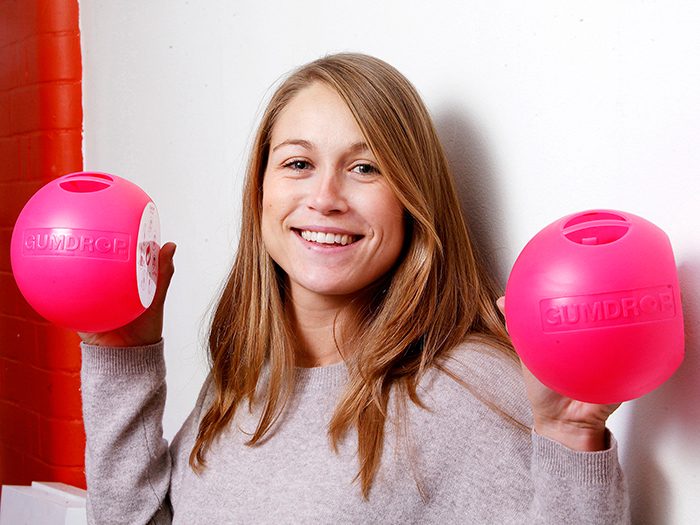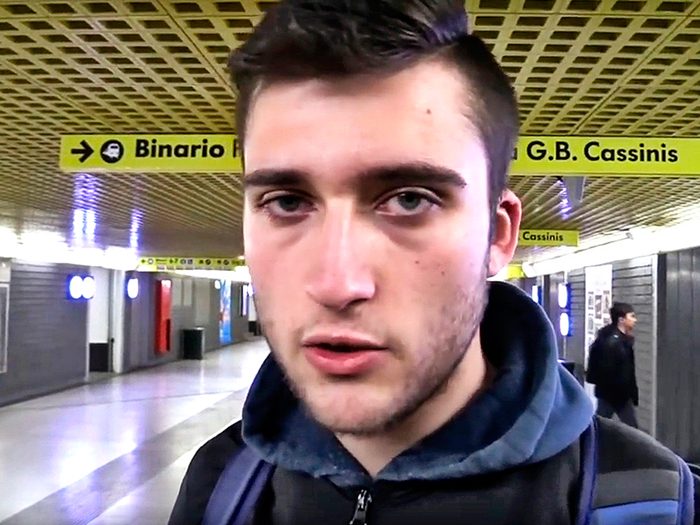Good News
Some of the positive stories coming our way

New Life for Old Gum
Design More than 16 billion euros is spent on chewing gum around the world each year, and much of it ends up stuck to pavements: it is said to be the second most common type of street litter after cigarette stubs.
British designer Anna Bullus became determined to recycle some of this discarded gum after discovering that its main ingredient is a kind of synthetic rubber that can be remolded into new products.
Her bright pink, bubble-shaped collection bins, called Gumdrop, are themselves made from recycled gum. These can be hung at head height with a message explaining that any gum left in them will be made into new products, such as mugs, lunch boxes and rain boots.
The University of Winchester was one of the first to try out the bins. After 18 months it noticed a drop in litter and is now expanding the scheme. London’s Heathrow Airport also tried the bins for three months and said they reduced cleaning costs by 6,800 euros.
“I do believe that we can change the way people behave,” says Bullus.
Free Rides to Clear the Air
Transport The German government says it will trial free public transport in five cities suffering from air pollution. Bonn, Essen, Herrenberg, Reutlingen, and Mannheim will all benefit from the new proposals, which come into force before the end of the year.
Pressure to make public transport free for environmental reasons has gradually been growing across Europe as countries struggle to meet European Union rules on toxic air pollution. Indeed Brussels, the EU’s de facto capital, has itself recently made its public transport and bike-sharing system free on the smoggiest days.
Another Belgian city, Hasselt, was among the first to go fare-free, back in 1997. But Europe’s only capital to offer permanent free transport to all residents is Tallinn in Estonia.
Amsterdam Fishes for Plastic
Tourism An Amsterdam company is offering sightseeing tours of the city with a difference. Plastic Whale offers canal trips in a recycled boat, offering participants the chance to fish out plastic waste as they go.
“Even in the beautiful, UNESCO-certified canals of Amsterdam, the problem of plastic waste is severe,” says founder Marius Smit. “Each year we fish out more than 25,000 plastic bottles and tons of other kinds of plastic waste.”

Student Saves Toddler on Milan Subway
Heroes Italian student Lorenzo Pianazza was on his way home at Milan’s Repubblica metro station when he saw a toddler fall onto the track. He didn’t think twice, and jumped down to grab him, even finding time to retrieve one of the child’s toys.
“I saw that there was a minute and a half before the next train arrived, so I could do it in time,” he said afterwards. “No one else was moving—they just stood there looking.”
Meanwhile, the station manager saw the episode unfold on monitors in the control room and immediately pressed the red button to stop any trains coming. Both were praised by Milan’s mayor, Giuseppe Sala, who invited them to his office.
“The important thing is that the child is back in its mother’s arms,” said Pianazza. “They’re saying I was brave… I was just ready.”
Sources: Design—BBC News, 6.3.18. Transport—The Guardian, 14.2.18; 26.2.18. Tourism—Lonely Planet, 22.2.18; The Guardian, 28.2.18. Heroes—ABC, 15.2.18



